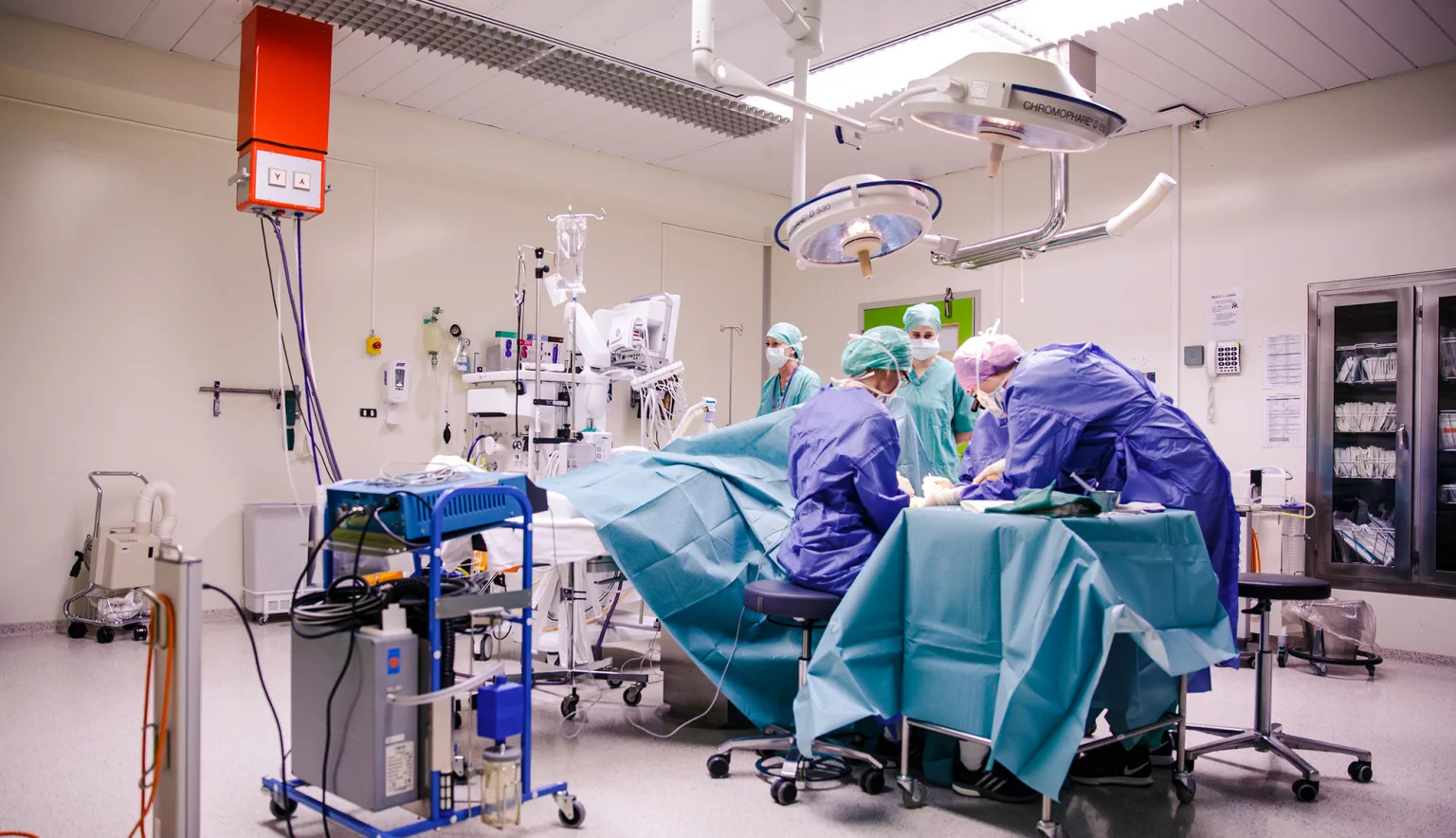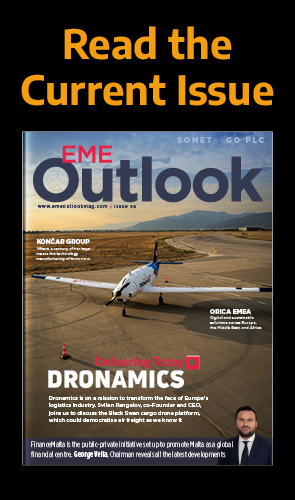Akureyri Hospital continues to strive for excellence in healthcare services in Iceland, innovating, optimising and expanding in the face of many health-related challenges. Bjarni Jónasson, its CEO, lays bare the current landscape.
HIGH-CLASS HEALTHCARE
For Iceland, the phrase good things come in small packages springs to mind.
From the heroic efforts of its national football team reaching the quarter finals of Euro 2016 and the fabled thunderclap of its 30,000 travelling fans (equating to eight percent of Iceland’s entire population), to an otherworldly landscape filled with glaciers and geysers, this seemingly outlandish state continues to impress in so many ways.
Take a look at its healthcare system, for example. Ranked the third best in the world according to the Bloomberg 2019 Healthiest Country Index, Icelandic men can expect to live longer than those of any other European country – a fact that’s all the more admirable when you consider it is the most sparsely populated country on the continent.
It does, however, beg the question: How has Iceland managed to establish such medical prowess?
The answer: by mirroring a crucial characteristic embodied by its football team, it is successfully maximising its potential.
“Although Iceland is a small country, there is generally a good level of access to services,” explains Bjarni Jónasson.
“The country is divided into seven healthcare regions, and in each of these there is a large healthcare institution. On top of that, two major speciality hospitals cater to the needs of the whole country – Landspítali (The National University Hospital of Iceland) located in the capital area, and Akureyri Hospital in the north.”
Jónasson himself heads up the latter of these two facilities. An individual with extensive background in industrial business development and consultancy, he now stands as the facility’s Chief Executive Officer.
“Why did I make the jump across to healthcare? For me, it’s a particularly interesting sector,” he says.
“Healthcare is a critical cornerstone of any community – when families move into a new house or area, schools and hospitals are often at the top of any list of priorities.
“But healthcare is more than that. It’s a challenging and gratifying sector to be in; one that makes it easy to wake up and go to work in the morning. You don’t have to question your motivation because you know you’re helping to provide a truly meaningful service.”
STRIDING AHEAD OF THE CURVE
Indeed, the impact of these services is immense.
Right now, Akureyri Hospital’s catchment, spanning the north and eastern parts of Iceland, is home to roughly 45,000 people for which the facility provides both general and advanced services. In addition, it acts as the primary reserve hospital for Landspítali
in times of health-related crises.
With this role comes major responsibility, a calling that Jónasson and his team are meeting through a variety of initiatives.
“In the last five years we’ve placed a major focus on quality and safety and have made great strides in this area,” he affirms. “In 2015, for example, we became the only hospital or healthcare institution in Iceland to have received accreditation from DNV GL, an organisation providing international clinical excellence certifications.
“Meanwhile, we’ve also been accredited with ISO 9001 relating to our quality management system, ISO 27001 for our IT security management system, and have just received certification for our equal pay management system.”
Research is another area in which Akureyri Hospital continues to excel, having developed an open forum with the University of Akureyri’s Institute of Health Science Research to facilitate collaboration and dialogue between the employees of both organisations.
And it is likewise investing heavily in transformative technologies, currently undertaking a series of projects in relation to e-health, telehealth, the automation of treatment processes and incorporating a host of other digital techniques.
“We recognise that the information revolution is having a great effect, not only in providing us with better equipment, processes, diagnostics and treatment capabilities, but equally changing the face of our communications,” the Chief Exec comments.
“We’re in the era of the new healthcare consumer – people not only demand but expect to get the information they need online or via social media, and we have to keep up with that.”
A LEADING LIGHT OF LEARNING
Advanced research and technologies are undeniably transforming application and consumption at all levels – a trend that’s only expected to accelerate year by year. Yet, with the benefits have come a multitude of challenges.
“The ongoing evolution of healthcare has meant that people are now living longer, happier lives, despite developing more chronic illnesses, simply because the treatments and medications that are now available allow them to do so,” Jónasson states.
“That’s of course fantastic. But a major challenge that we are facing because of this is the growing population – it’s placing a heightened strain on our healthcare systems.”
So how is Iceland able to rise above these pressures? Primarily, through an emphasis on education, proactively looking to counteract said challenges by stemming skill shortages at source.
The CEO explains: “Since the founding of the University of Iceland in 1911, the training and educating of medical students has been a major focus locally. Education and training of other healthcare professions has also followed suit.
“We see hundreds of Icelandic healthcare professionals graduating here every year, across a breadth of specialisms. And aside from that, many Icelandic students will study abroad in the UK, the US or the Scandinavian countries which has helped to create a dynamic local environment.”
Indeed, Akureyri’s own efforts are crucial in nurturing this national culture of learning.
The Hospital’s Department of Education and Science offers vocational training to university students and upper secondary students, and it pursues numerous grassroots efforts aimed at inspiring school children to consider a career in healthcare.
Additionally, it has also been collaborating with other institutions in Sweden, Scotland and Norway, partnerships that have served to provide mutual insights into successful methods that can assist in expanding the knowledge pool.
Speaking with Jónasson, it is evident that upskilling is not the only motivation behind these efforts, however. For the CEO, the empowerment of people is likewise something close to his own and Akureyri’s heart.
“We try to constantly recognise the contributions that our staff make and provide them with new opportunities to learn at every stage of their career,” he reveals. “We want to give our people a purpose – a reason to continue to come here and deliver these amazing services on a daily basis.
“We’re proud to say that our annual turnover rate is less than 10 percent. And that’s testament to the great work of our HR department, providing our employees with great opportunities to enrol on countless development programmes.”
A BRIGHT FUTURE
This modus operandi won’t waver moving forward, Akureyri Hospital’s emphasis on staffing set to be a long-term strategy. Yet it is not the only way in which the organisation will be hoping to progress, the CEO able to point to a plethora of other efforts that are heating up on its expanding radar.
It is unavoidable that the hospital will have to operate within the confines of fixed budgets year by year, a fact that is forcing it to innovate, invest in lean methodologies and enhance its operational efficiency on all fronts as the demands for its services continue to grow exponentially.
Such will hugely complement the aforementioned employee-centric efforts – a combination set to ensure the continued development, improvement and expansion of its ever-growing service offering, Jónasson himself highlighting outpatient services as a current major focus.
“I am optimistic,” he affirms as our conversation comes to a close.
“I think we’ve been heading in the right direction. Last year, the Ministry of Health here in Iceland issued a new policy for health services until 2030, laying out the main topics and objectives for the next decade which are worth analysing.
“It’s quite a promising policy, and we’re hopeful that we’ll see it being funded in the coming years. I believe it gives great room for a bright future.”



































